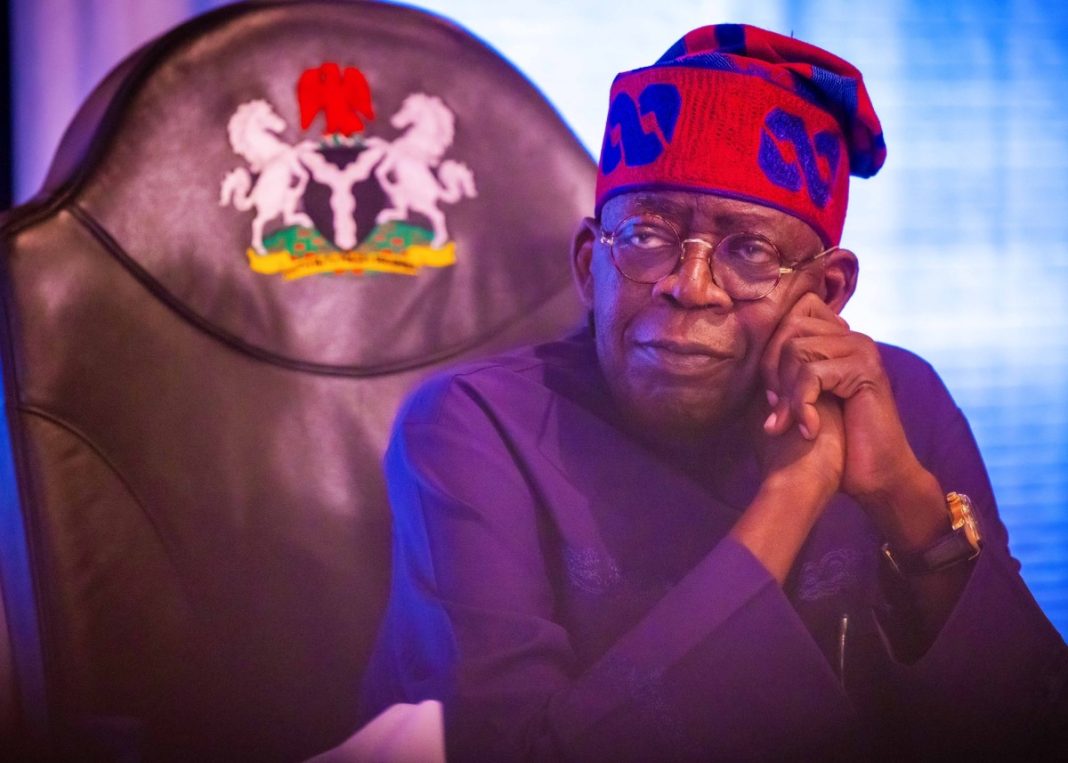ABUJA, Nigeria — The Presidency has strongly dismissed recent claims by Sule Lamido, former governor of Jigawa State and one-time national secretary of the Social Democratic Party (SDP), alleging that President Bola Tinubu supported the annulment of the 12 June 1993 presidential election.
In an interview with Arise News, Lamido claimed that Mr Tinubu, then a senator, was aligned with the military government following the annulment of the election won by Chief Moshood Abiola, and further alleged that Tinubu’s mother, Alhaja Abibatu Mogaji, mobilised market women in support of then military ruler, General Ibrahim Babangida.
The Presidency, in a detailed statement on Sunday, June 22, 2025, signed by presidential spokesperson Bayo Onanuga, categorically described Lamido’s claims as “patently false” and a distortion of historical events.
“Alhaja Mogaji never mobilised market women to support the unjust annulment,” the statement read.
“Had she done so, she would have lost her position as market leader in Lagos.”
The statement went on to criticise Lamido’s role during the period, accusing him and the then SDP chairman, Tony Anenih, of failing to resist the military’s actions.
“To their eternal shame, Lamido and Anenih teamed up with the defeated National Republican Convention to deny Abiola his mandate,” Onanuga alleged.
In contrast, the statement provided a detailed account of Tinubu’s actions opposing the annulment.
It cited a Senate debate on 19 August 1993, in which Tinubu openly condemned the annulment, describing it as “another coup d’état”.
“We have a situation that suggests that the abortion of the June 12 election is another coup d’état,” then-Senator Tinubu was quoted as saying.
“Without the abortion or annulment of the June 12 election, there would be no crisis like this. We have a government that made the law and abused its law.”
According to the presidency, Tinubu continued to oppose military rule even after General Sani Abacha seized power in November 1993.
Tinubu and a group of senators allegedly reconvened in Lagos in defiance of the military, resulting in their arrest and detention at Alagbon.
The statement further claimed that Tinubu, while in detention, funded pro-democracy protests and later went into exile, where he continued to support the National Democratic Coalition (NADECO) and the pro-June 12 movement.
It noted that his residence in Lagos was bombed during this period.
“Tinubu lived in exile for nearly five years while Lamido and his ilk made deals with Abacha,” the statement alleged.
“While Tinubu was away, agents of the junta bombed his home in Balarabe Musa Crescent, Victoria Island.”
The presidency also pointed to Tinubu’s support for international resistance efforts, including backing Professor Wole Soyinka’s NALICON and providing resources to journalists and activists in exile.
Mr Onanuga described Lamido’s remarks as “revisionism” and accused him of seeking to rewrite history for political purposes.
“It is thus disappointing that Alhaji Lamido, despite acknowledging Tinubu’s NADECO role, would attempt to rewrite history,” he said.
“No matter how the past is distorted, the facts remain clear: President Tinubu was—and remains—a steadfast advocate for democracy,” the statement concluded.







![Honouring a Rare Soul: Celebrating the Life of AVM Terry Omatsola Okorodudu [MUST READ] Air Vice Marshal Terry Omatsola Okorodudu](https://www.thetrentonline.com/wp-content/uploads/2026/01/Joan-and-Bidemi-Okorodudu-The-Trent-100x70.jpg)